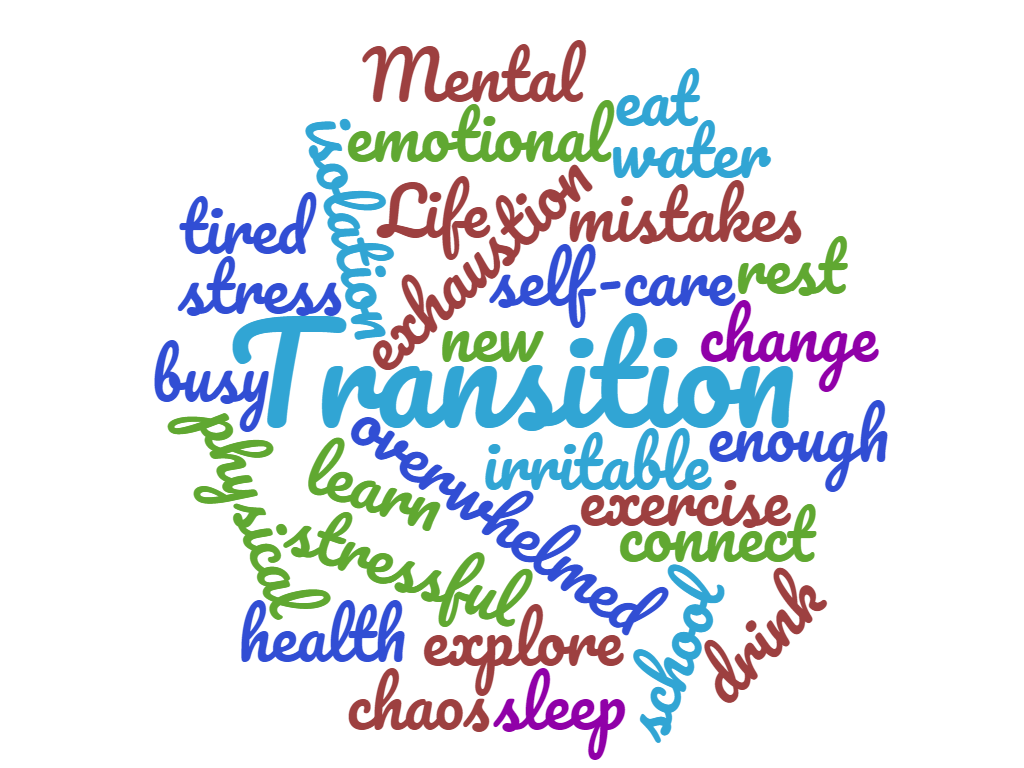
For many people, particularly here in Japan, Spring is a time of major change. People start new jobs, move to new locations, and start spending more time outdoors. Students start the new school year which, for some, means joining a new class; for others, means attending a new school, and for still others, may mean going away to college.
Spring is a time of change and with any change, there is likely to be a period of transition. This can be a chaotic period for anyone, regardless of age, background, or situation, and knowing how to manage the stressors of this time is vital.
Two things to keep in mind during your transition:
Awareness
Understand that this is a chaotic moment in your life, and it is perfectly normal to be anxious or a bit irritable. You may also feel overwhelmed or lost, thanks to the many changes you’ve been confronted with. Be aware of these things and know that they are not permanent, they will dissipate over time.
Patience
Try to be patient with yourself. You will not immediately know everything about your new environment. You will likely make a few mistakes as you adjust and learn to navigate, and that is fine. Expecting yourself know everything right away will add unnecessary stress to an already stressful time. Take your time, explore, and let every mistake be a learning opportunity.
With these in mind here are a few tips for minimizing the stress and chaos of this period:
Take care of your physical health
Any period of major change will cause a some stress, and it is much easier to get sick during this time. Even the most minor illness can make everything else more difficult to handle and, in turn, add more stress. So it is essential to take care of your health throughout.
Keep junk food at a minimum. Although it will be really tempting and really easy to eat a lot of junk food, do your best to avoid it. Eat well, drink lots of water, and exercise regularly. Something as simple as a taking a walk around the neighborhood can be very helpful!
Take care of your mental health
We don’t always realize how closely linked our physical and mental health are. Since these two often interact with each other, taking care of mental health is just as important as taking care of physical health.
Take time for your hobbies and passions. Let them act as outlets for any built up stress.
Establish routines. Kate Berardo’s framework for cultural transition “The 5Rs of Culture Change” describes routines as a major buffer for transitional stress, but also as one of the first things to be disrupted during transitional periods. Try, as much as possible, to maintain old routines and establish new ones when necessary.
Explore and connect
When there’s so much happening, you may be inclined to withdraw from the outside world and, while some alone time can be therapeutic, complete isolation will only make everything more difficult. Isolating yourself will keep you from learning how to navigate the situation, and making new connections. Over time, it will get harder to do both.
Decide on specific things you want to go check out, such as shops, parks, restaurants, or other points of interest. Make a visit to one, and spend some time there. Choose a day to go visit another, and so on.
Attend community events and join groups related to your interests. Connect with people who are going through a similar transition period, as well as people who have gone through it before and are willing to act as mentors.
Remember that even when you are doing your best to take care of yourself, the disruption brought on by transition can sometimes become too difficult to handle alone. If you find yourself feeling irritable, sad, exhausted and/or unable to complete daily tasks, for an extended period of time, it may be best to look for professional assistance.
Here at Tokyo Mental Health our providers are skilled in working with a variety of problems, including adjustment difficulties, depression, and anxiety. Please call or email us to learn more about our services, and to schedule a session.
—–
By: Nicole Gordon
—–
Citation
Berardo, K., & Deardorff, D. K. (2012). Building cultural competence innovative activities and models. Retrieved May 1, 2019.